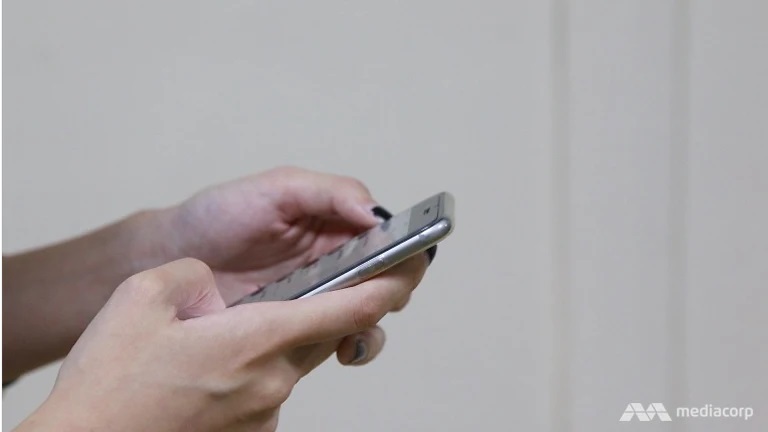
A person using a smartphone.
SINGAPORE: Singapore is on track to offer nationwide 5G coverage by 2025, after Singtel and a joint venture by StarHub and M1 were on Wednesday (Jun 24) issued final awards to operate networks here.
This marks the close of a “robust and rigorous” 5G call for proposal process, said Minister for Communications and Information S Iswaran.
“With this, it sets the stage for the development of a world-class, resilient and secure 5G infrastructure which will be the backbone of Singapore’s digital economy,” Mr Iswaran said.
“We remain on track for nationwide 5G standalone deployment by 2025. We will build upon this infrastructure to create a vibrant 5G ecosystem, offering exciting opportunities and benefits for individuals, workers and businesses in Singapore’s digital future.”
Singtel and the StarHub-M1 joint venture had won bids in April to operate 5G networks across Singapore, and were issued “provisional awards” pending completion of regulatory processes such as the selection of spectrum lots and confirmation of technical and legal matters.
In a media release on Wednesday, the Infocomm Media Development Authority (IMDA) said the companies have completed the required processes, and also satisfied other call for proposal requirements on network rollout and performance, coverage, resilience, cybersecurity and vendor diversity.
Singtel and the StarHub-M1 joint venture can now proceed to deploy nationwide 5G standalone networks that deliver full-fledged 5G capabilities.
TPG Telecom, meanwhile, would be able to roll out localised 5G networks.
“TPG Telecom has also applied for and is being allocated the remaining frequency spectrum in the millimeter wave band to roll out 5G networks on a localised basis,” IMDA said.
Wholesale arrangements for the use of 5G networks provided by Singtel and the joint venture will be available to TPG and mobile virtual network operators, which can in turn offer retail 5G services to end users.
The fifth generation of high-speed mobile Internet, 5G promises surfing speeds 20 times faster than what’s offered by 4G networks.
BUILDING 5G CAPABILITIES, TRAINING PROGRAMMES
IMDA said that it will continue to forge strong partnerships with the industry, “paving the way for a vibrant 5G ecosystem in Singapore”.
For instance, it will launch a facility in one-north in September, to facilitate industry efforts to develop new 5G solutions and build up technical capabilities.
The facility, called 5G Living Lab@PIXEL, will focus on augmented or virtual reality, which is “critical for in-person experiences”, said IMDA.
“This is especially relevant today, given the increasing need for remote events and activities to support sectors such as retail and construction that have been affected by COVID-19.”
It will also partner institutes of higher learning to offer 5G-related training programmes to “nurture a pipeline of 5G-ready workforce” across the telecom sector. In-house training plans will be developed by mobile network operators to support 5G talent development and deployment.
“Our secure and resilient 5G networks will be the backbone of Singapore’s digital economy,” said IMDA.
Speaking to the media via Zoom, Mr Iswaran said that the next step is to roll out the infrastructure – an important phase in the development of 5G networks.
“This entails a significant level of investment running into billions of dollars by these entities in order to roll out the infrastructure … over the next 15 years of the licence,” he said.
“That underscores a certain level of confidence in our economy and the conviction that this investment will yield the returns over that period of time.”
He added that these investments will create opportunities for business and jobs for Singaporeans, despite the economic uncertainty now.
Responding to a question about whether the COVID-19 pandemic will affect the roll out of 5G in Singapore, Mr Iswaran said he “cannot rule out the possibility”.
“But as of now, we have no indication that that will be the case.”
He emphasised that the investment in 5G infrastructure is a long game that will last for more than a decade.
“So I wouldn’t be too concerned about a seepage of a matter of months – if in fact it arises – because our focus is on the long-term impact of this infrastructure.”



